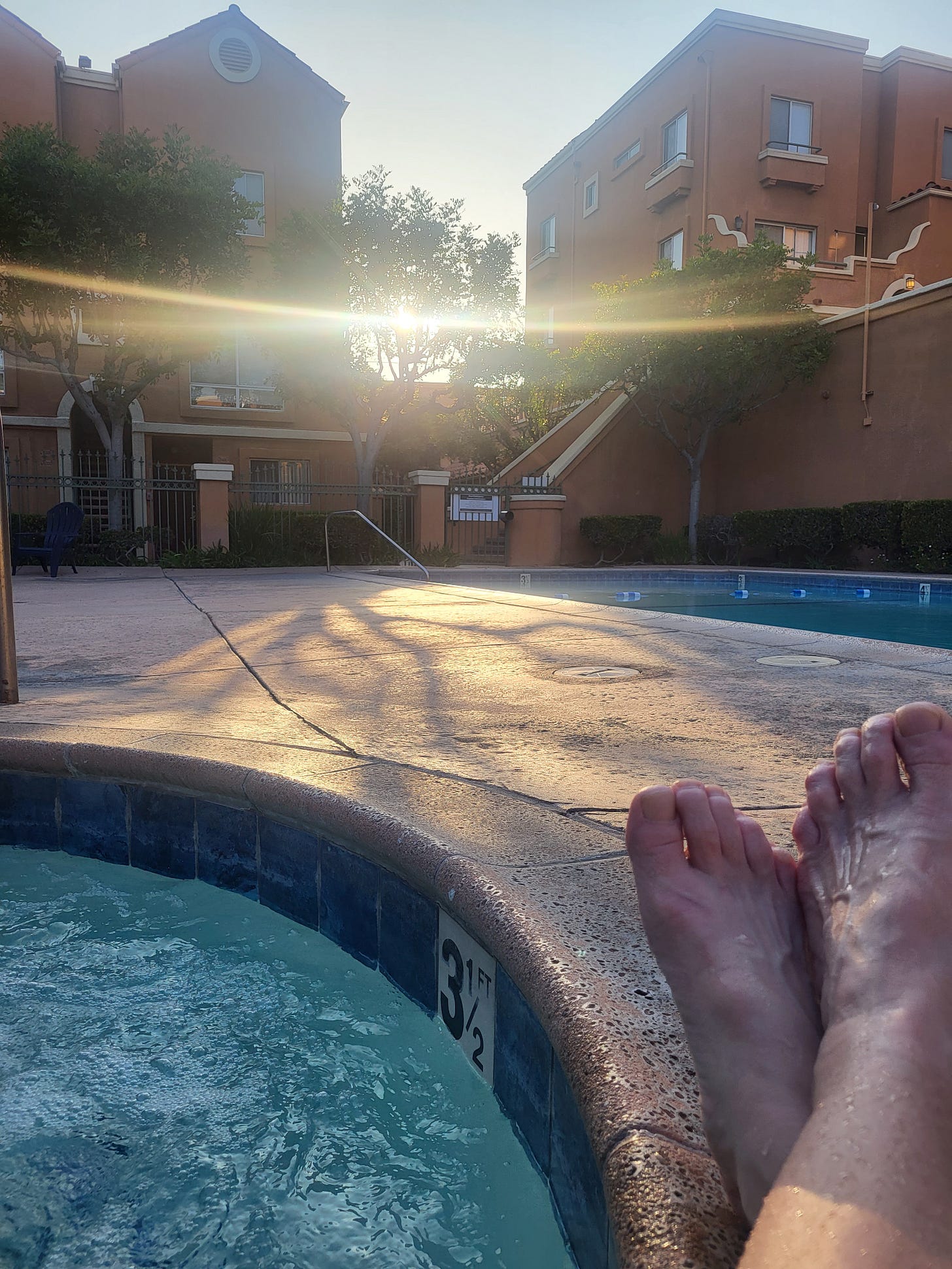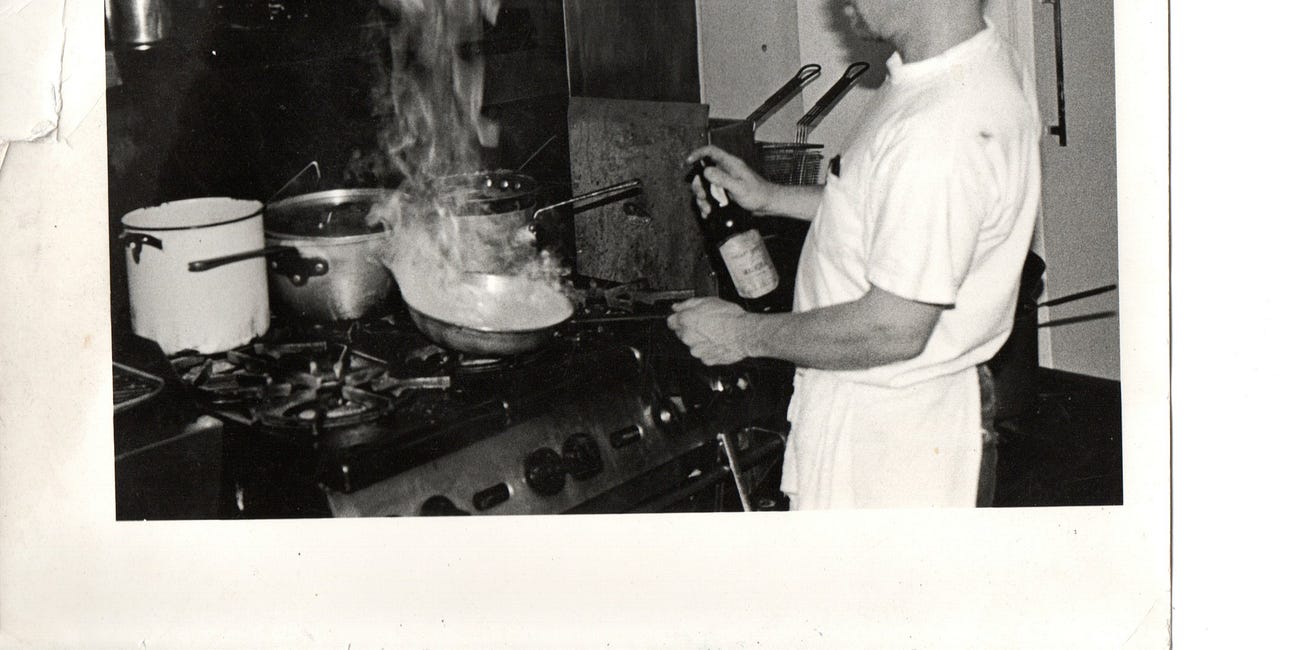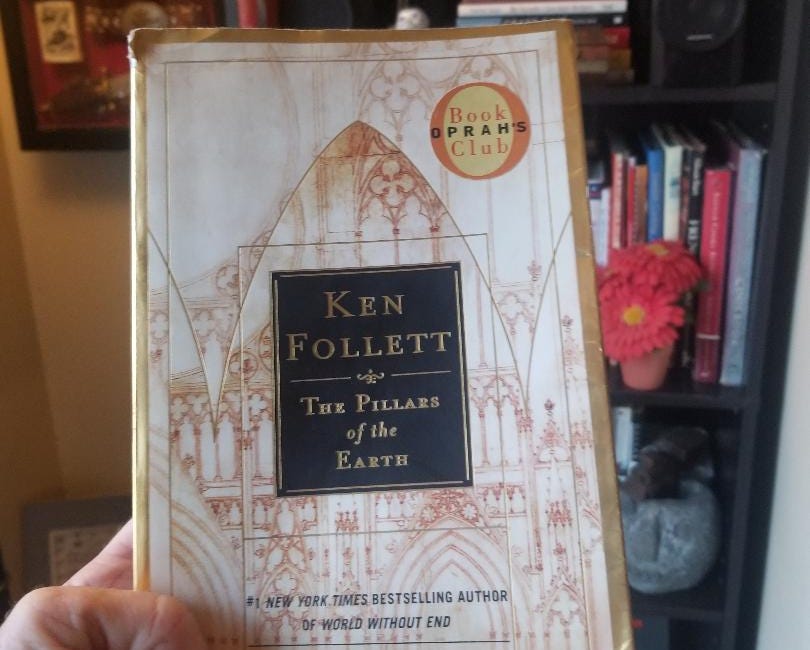What I Do
Mandatory Food-Service at 16. But with regimented training and success opportunities. Move beyond minimum wage and provide a purpose.

Always dream and shoot higher than you know you can do. Do not bother just to be better than your contemporaries or predecessors. Try to be better than yourself.
If one can be drafted to kill another human being, then we should draft a few million more to feed the ones we’re teaching to kill. If one can be inculcated into killing another, or many other, human beings, then shouldn’t we inculcate service to others as a counter-balance? Serve to kill? Or kill to serve?
As a career-career-changer, who’s go-to pretend occupation is architect, I consider Georges-Auguste Escoffier my patron saint. He executed the most brilliant transfer of skills from one arena to another.
Georges-Auguste Escoffier was a French chef, commonly known as "the king of chefs and the chef of kings". Following on from the work of Marie-Antoine Carême, one of the first to codify French haute cuisine, Escoffier achieved fame through his efforts to simplify and modernise the very traditional and elaborate style of his predecessor.
In addition to his development of the five French mother sauces, Escoffier's legacy lives on in the "brigade de cuisine" system which many modern kitchens adapt today. Having served in the French army, Escoffier transferred his experience with the clearly defined structure and duties of a military brigade into the kitchen, assigning over 20 specific cook positions throughout the kitchen. The purpose of the kitchen brigade was to ensure every cook had a clear purpose and the kitchen could work to maximum efficiency.
Today, many of the traditional roles within the kitchen brigade have been made redundant by more efficient supply chains or technology. For example, butchers and fishmongers are less common due to many restaurants buying pre-prepared cuts. Nonetheless, the system lives on to some extent in almost all fine dining restaurants.
We have almost two million active-duty service members (tip of the cap to all of you!). Contrast with about 15 million hospitality and leisure industry (another tip of the cap to all of you as well). Well, wait, Ric. How does that support your hypothesis? Looks like it don’t, huh? Well, that’s why I’m here. To make sense of the counter-intuitive. To explain the inexplicable. To observe the obvious and report on it.
The lack of bodies in the food-service industry is one of the most obvious negative impacts of covid on our social condition. Study after study documents the freedom from hell called the restaurant industry of around two million souls. Even I quit the industry, announcing it with my typical understatement.
It’s You, Not Me!
The real estate crash of 1997 put a fork in the road for me to choose a calling. I chose the fork and jumped out of the frying pan and into the fire.
Written two years ago, that sentiment is now tempered by the fact that I am, indeed, back in the industry. The last paragraph in that piece offers the only insight I have into why.
Heat, noise, aroma and passion create a crucible unexplainable to one never fortunate to burn in one. Anger, frustration and pain blend with love, creation and joy to transform rawness to completeness. In food and in humans.
It was brutal and hurtful. It was beautiful and amazing. It was all at once, at 100% for hours. It was relief and joy. It was love and hate. It was life.
Nothing inculcates service to others more than food service. I firmly believe that America could be saved by nothing more than teaching each and every 10-year-old to feed, clean, and dress themselves. And to teach their peers to do the same. And that by 16 years of age every human being involved in a civilized society should be able to navigate the rather lackadaisical norms of the current sculpture of so-called-society. It’s not that hard, honestly.
Like how to awake at a designated time. Like how to dress and park for work. Like how to hold a conversation on the phone or face-to-face. Like how to interact in a professional setting. Like having social and situational awareness. Like looking at people instead of avoiding contact.
When I was 12, they called it Polite Society. We called it bullshit. Thirty some years ago, on my honeymoon cruise, I thought it odd that fellow cruisers were complaining about getting dressed up for dinner. I mean, we’re being asked to basically wear some clothes for an hour after cavorting around the Caribbean nearly naked for all day. Fuck, get off your lazy ass and put on real pants.
And that was a bridge too far. Dumb, fat, lazy Americans. Wonder how we got that reputation. It now appears that the service industry is filled with non-service-providing workers. Much like the Carol Burnett skit below. It’s some of the best seven minutes you will spend lately.
The biggest upward shift in my personal sense of self-satisfaction came with understanding the quote from William Faulkner that leads this piece. It’s also the single-most popular sentiment of nostalgia, or more accurately, it’s the wisp of regret wrapped in wisdom most people I interview or talk to express openly.
And not just understanding it, but coming to terms with it. Success in the service industry demands instant and endless empathy, enduring emotive intuition, and expansive explosive energy. And satisfaction is not success to some. For some, satisfaction comes in supplication. Of the server.
A roll of the eyes is warranted, please roll away-yeah, I’m a hundred-years-old. But Holy Hell, civilized society is a hell of a lot older. The link below tells the story of how some archeologists in Morocco just turned upside-down the Out of East Africa Theory of Evolution.
They dated Homo-Sapiens to 300,000-years ago. In Morocco. With Fire and Tools. They discovered a family in a cave. The family were Hunters that butchered their catch and cooked it over fire. And most likely shared their bounty with others.
As a tried-and-true Ancient Aliens Warrior, I guffawed as the esteemed archeo-paleontologyisty-experty-dudes mused on-camera about “how could there have been multiple ancient civilizations using similar tool technology and hunting techniques thousands of kilometers apart from each other?”
Ok, is it just me? Or do those two dudes look like brothers? Click on them to find out more. The Magellan documentary chronicles an actual in-the-moment shift of scientific theory. This discovery and dating of the Homo Sapiens fossils to be over 315,000 years old blows apart the long-held conventional theory. I fricking love when that happens.
The discovery of this apparent family, as described in this piece in LiveScience, confirms to me, and probably multitudes of others in the industry of feeding people, that food, specifically cooked meat, is meant to be cooked and shared.
The oldest known bones of our species, dating back around 300,000 years, have been discovered in a cave in Morocco.
The fossils — which belong to five individuals, including a teenager and a younger child — push back the origin of Homo sapiens by 100,000 years, scientists say. The fossils also suggest that our species originated throughout the entire African continent instead of mainly in its eastern corner as previous research had suggested.
What the hell are you reading?
Holy Hell! Is 2020 over yet? Only one other time in my life have I had the opportunity to read as many books as I wanted to, and I ended up reading 180 books in 240 days. Let’s just say I had some fr…
If you click on the post above, I wrote about Cooked, a book that highlights mankind’s transformation from raw-plant-chewer to cooked-meat-eater.
The subtitle “A Natural History of Transformation” is absolutely spot on. The author drives home the point that cooking IS culture. Modern society has lost track of what exactly food is, and the deep satisfaction one gets from preparing, serving and sharing it, and the results have been disastrous.
Cooked meat had long been established, first through burnt-animal-corpse discovery after wildfires. Can one even imagine that first bite of cooked meat? What that meant to the trajectory of humankind? We can chart that course through history. I found this full-on doctoral thesis online that I will be fabbit-holing.
From that dissertation comes the most honorific descriptions of hospitality ever
Hospitality was a way of honouring the Gods, which was so essential, so fundamental to civilized life, that its patron was the God of Gods, Zeus himself: ‘Zeus is the protector of suppliants and guests, Zeus Xeinios, who attends to revered guests’ (Homer, Odyssey 9:270-71).
So there’s that. What an honorable, honest, and holistic industry. Hospitality. And then there’s this: The certain and special Hell that Mother’s Day Brunch is for restaurant workers. All for a lobster claw.
Since ancient times, hospitality has come with demands. And time after time, over millennia, we have answered that call.
It is clear from this, and in conjunction with the other scenes in the Homeric writings, that hospitality brought expectations: a warm welcome; food; a comfortable place to sit; charming company; and entertainment. Since the traveller would not usually be wandering from their home into the dangers of the world, it was assumed they were on some mission. The host therefore was expected to be able to provide some form of assistance, thus ‘you shall tell us what your need is’.
You, my community of readers: Friend. Family. Stranger. Guest. Host. Each a role that we have all played. Each role a common thread in this tapestry of life we are weaving. We know how to be a guest because we have been a host. We call a stranger friend. Our friends are the family that we choose, they say. I say, our friends are the family that we feed. I choose to feed one and all.
I leave you with gratitude, appreciation, and solicitation. The expectations we place upon each other spring from the most benevolent of places. The expressions of patronage flow from the least expected of spaces.
Please patronize me at will. Thank you and may I have another. Don’t take your food for granted. It should be delicious every day. Check out this playlist - it will surprise the hell out of you.
Eat well,
Ric








